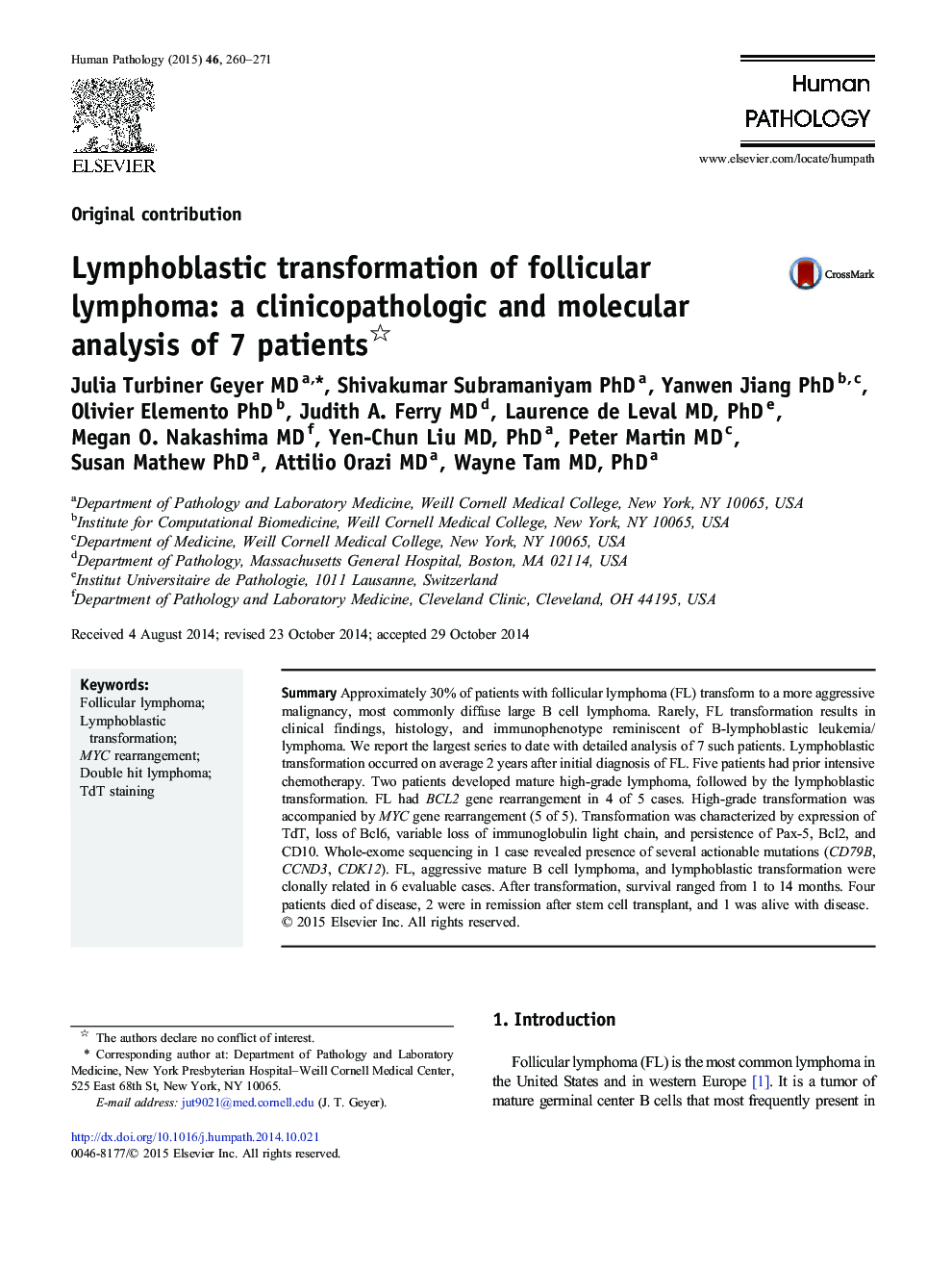| Article ID | Journal | Published Year | Pages | File Type |
|---|---|---|---|---|
| 4132584 | Human Pathology | 2015 | 12 Pages |
SummaryApproximately 30% of patients with follicular lymphoma (FL) transform to a more aggressive malignancy, most commonly diffuse large B cell lymphoma. Rarely, FL transformation results in clinical findings, histology, and immunophenotype reminiscent of B-lymphoblastic leukemia/lymphoma. We report the largest series to date with detailed analysis of 7 such patients. Lymphoblastic transformation occurred on average 2 years after initial diagnosis of FL. Five patients had prior intensive chemotherapy. Two patients developed mature high-grade lymphoma, followed by the lymphoblastic transformation. FL had BCL2 gene rearrangement in 4 of 5 cases. High-grade transformation was accompanied by MYC gene rearrangement (5 of 5). Transformation was characterized by expression of TdT, loss of Bcl6, variable loss of immunoglobulin light chain, and persistence of Pax-5, Bcl2, and CD10. Whole-exome sequencing in 1 case revealed presence of several actionable mutations (CD79B, CCND3, CDK12). FL, aggressive mature B cell lymphoma, and lymphoblastic transformation were clonally related in 6 evaluable cases. After transformation, survival ranged from 1 to 14 months. Four patients died of disease, 2 were in remission after stem cell transplant, and 1 was alive with disease.
